
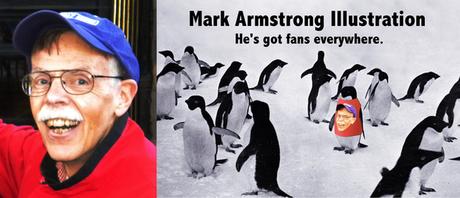



* * * * * * *

Mark, we’ve always been impressed with folks who have a very clear sense of purpose and so maybe we can jump right in and talk about how you found your purpose?


I worked after school at a drugstore. Part of my job was decorating the store windows. I didn’t have much to work with, so I had to get creative. I loved doing it. I should have picked up on the hint I was a visual communicator, but alas, I didn’t.

After college, I drifted into programming and systems analysis. I did magazine gag cartooning on the side. When the company I worked for decided to relocate, it presented a now-or-never opportunity. I decided to be brave and become a full-time freelancer.


* * * * * * *

Before we dig deeper and ask you about the skills that matter and more, maybe you can tell our readers about yourself?
I started out as a cartoonist, then moved into illustration. I did a lot of editorial work, illustrating stories for magazines and business journals. I also drew caricatures at Christmas parties, company picnics, business expos, you name it. I’ve worked as a political cartoonist and I also self-syndicated a weekly comic strip which ran for seven years.

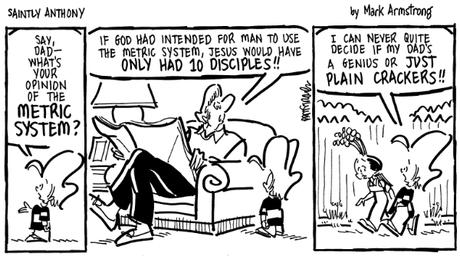
“Saintly Anthony” was a weekly strip that ran in Catholic diocesan papers. I wrote and drew 5 strips a month.


* * * * * * *

My editorial assignments dried up as print magazines folded, and I moved into creating visuals for marketing campaigns. I’ve done work for Coca-Cola, Chick-fil-A, and lots of smaller brands.

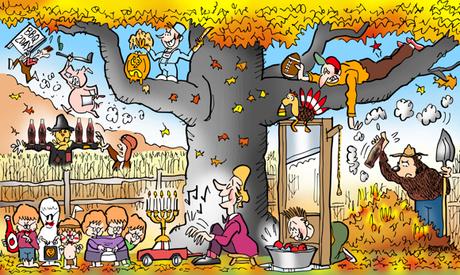
For the Coca-Cola Company, for a post called “10 Things That Go Better With Coke, Fall Edition.”


* * * * * * *

Looking back, what do you think were the three qualities, skills, or areas of knowledge that were most impactful in your journey?
Sounds funny, but “not knowing any better” helped me succeed. I’ve never been to art school. I’m self-taught. That includes both drawing and using image-editing programs. I didn’t have a portfolio when I started out. I didn’t have a business plan, either. I just jumped in. Not smart, but I made it work because I didn’t know any better.

Another important skill is knowing when to pivot. I couldn’t sell enough gag cartoons to make a living, so I moved into magazine illustration. When that dried up, I switched to marketing. I’ve learned visual communication doesn’t stand still. You have to be willing to reinvent yourself and ferret out new opportunities.

My greatest skill is thinking up ideas. You’ve got to have a good idea before you start drawing. True for a gag cartoon, an illustration, or a marketing campaign. There are lots of people who can draw better than I can. Stock images are a dime a dozen. I try to sell myself as an idea person.

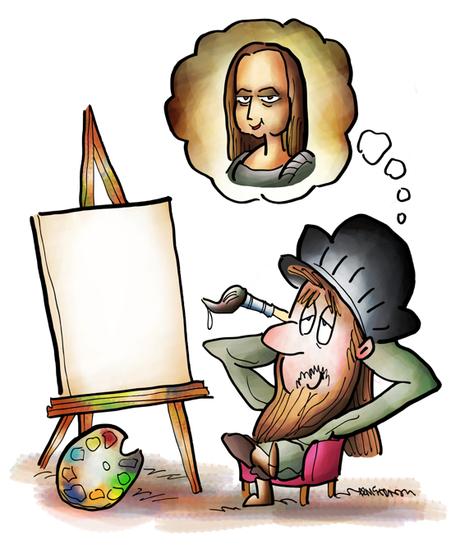
“Idea Man,” for a post I wrote about champion idea man Leonardo da Vinci.


* * * * * * *

What advice do you have for folks who want to be commercial artists or better visual communicators?
Take art and design classes. Learn the rules; you can creatively break them later.

Be computer savvy. Learn the various design and image-editing programs.

Experiment. Discover your style, what makes you unique. Go to school on artists you admire, but don’t copy them.

Have fun. If you don’t enjoy the work, you’ve made a wrong turn somewhere.

Above all, figure out a way to be different and get noticed.

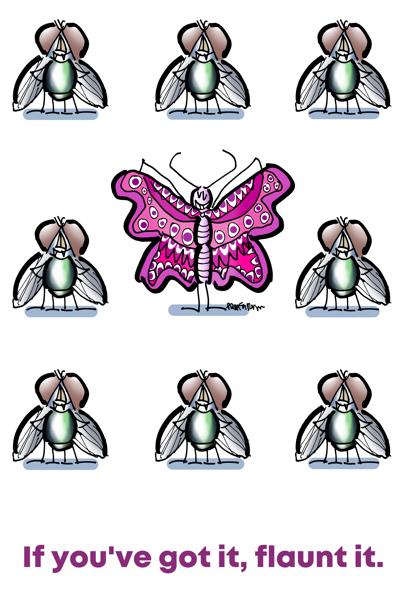
“The Importance of Getting Noticed,” part of my entry for Vidyard’s annual Video In Business Awards.


* * * * * * *

Is there a particular challenge you are currently facing?
The #1 obstacle facing every artist today is artificial intelligence software, specifically AI image generators like DALL-E 3 and Midjourney. It’s hard to compete with programs that will spit out images in response to simple text prompts, especially when they only cost $10 or $20 a month.

You meet this challenge in one of two ways. You become an AI artist yourself (in the sense of mastering the programs and using them to generate images), or you double down on human-generated art and try to make a case for it.

I’ve chosen the second path. It’s going to be a tough slog for a while because people like the novelty and cheapness of AI images. My feeling, however, is that as AI images proliferate, they will start to look more and more alike. They’ll become a new kind of stock art. People scroll past stock images because they look like stock images, i.e., filler. I think people are already scrolling past a lot of AI-generated art.

Visuals are supposed to get people’s attention. They’re supposed to get the person to do something: read the post, buy the book, watch the ad. To grab attention, a visual has to be different.


